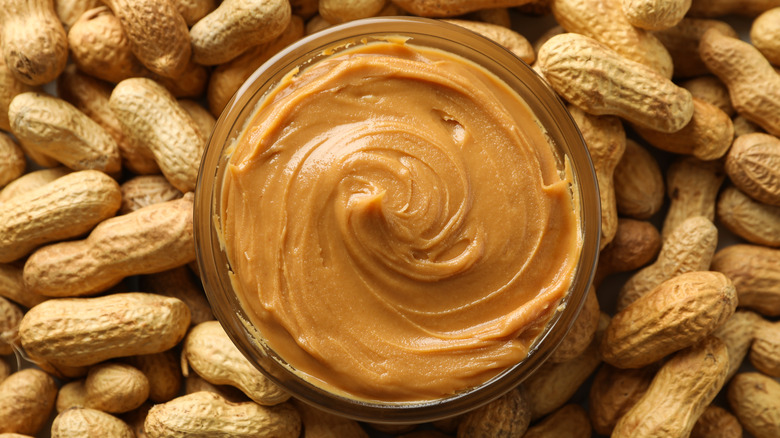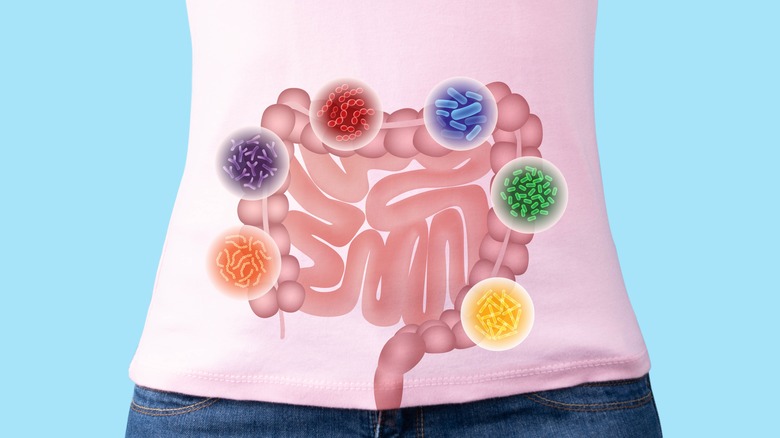New Research Could Signal Help For Those With Certain Food Allergies
Scientists at the American Chemical Society's (ACS) fall meeting in Chicago announced good news for people living with food allergies: A treatment may be on the horizon. According to an ACS press release, the findings were presented on August 21 and demonstrated how supplementing the gut microbiome of mice with an allergy to peanuts prevented them from experiencing symptoms.
New Scientist explains that research has shown a link between people with food allergies and a fat molecule called butyrate. Butyrate is produced by bacteria in the gut and has been noticed in lower quantities in animals and humans with allergies to food like peanuts. As ACS describes it, less butyrate in the gut lining can cause partially-digested food particles, like peanut proteins, to escape the gut and cause a severe immune response, or allergic reaction. Allergic reactions to food can range from hives or nausea to severe breathing problems and anaphylaxis, which Mayo Clinic notes can send a person into shock or even cause death if not treated quickly.
The solution proposed to eliminate these reactions, therefore, is to increase the amount of butyrate-producing bacteria in allergic individuals' guts. However, this is difficult because, as the researchers noted, the bacteria itself smells and tastes so foul that humans would struggle to swallow it. Worse still, even if the aversion could be overcome, the digestive process would destroy it before it could get to the lower digestive tract where it needs to grow if taken in a traditional oral form.
Boosting our biomes
This is where the new development comes in. According to the ACS press release, researchers Dr. Cathryn Nagler and Dr. Ruyi Wang developed a new drug delivery system which masks butyrate's smell by creating a polymerized substance around it. The surrounding polymer capsules (or micelles), which are only 30 nanometers wide according to New Scientist, dissolve in the digestive process and pass through the body, while the important molecules are delivered safely to the gut's microbiome.
When tested in the peanut-allergic mice, those who were consuming the micelles twice a day for two weeks showed no allergic reaction when fed peanut proteins, while mice in the control group who'd been given just a saline solution experienced signs of anaphylaxis.
The results are significant enough to move the research into larger animals and potentially human trials. ACS notes that if the Food and Drug Administration (FDA) approves the treatment, it would eventually be sold in packets to dissolve in water and drink. Researchers are hopeful that people would only have to take the medication for a short time until the bacteria was established in their guts to produce a sufficient enough of butyrate on its own (per New Scientist).
Since the butyrate link seems common in people with allergies to a variety of foods, the hope is that this treatment could apply to more than just peanut allergies. According to End Allergies Together, food allergies impact 220 million people globally, many of whom could benefit from this research.

